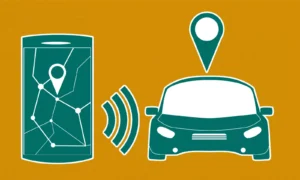New research by leading CAV expert Professor Nick Reed is highlighting how challenging it will be to arrive at a consensus over self-driving vehicle operation.
The automotive and technology industries have committed huge resources to the development of self-driving vehicles, but what do the public think about how they should operate on UK roads? Reed Mobility has been gathering public opinion through surveys and workshops, to explore people’s views about ethical rules for the use of self-driving vehicles. The project is examining everything from how to protect vulnerable road users to how much people trust the organisations responsible for developing the technology.
The emerging findings show that participants in both the survey and workshops have provided diverse feedback over their expectations for self-driving vehicles. For example, 17% of survey respondents strongly agreed with the suggestion that self-driving buses should “drive at speeds that keep up with the traffic flow (within the speed limit), even if this increases risk to pedestrians” whereas 16% of participants strongly disagreed with this idea. This research will identify where common ground exists over self-driving vehicles – and where tensions may develop.
Reed Mobility was announced as a joint winner of the Rees Jeffreys Road Fund 150 Competition in March 2022, and was awarded funding to develop the research project safe, ethical equitable road use with self-driving vehicles. A year on, the Trustees are delighted to share this first progress report on Reed Mobility’s project.
Chairman of the Trustees David Tarrant said, “The Rees Jeffreys Road Fund believes roads really matter to all of us. We saw how the Reed Mobility project would enable citizens to have a stake in the governance framework for self-driving vehicle deployment, increasing the likelihood that self-driving vehicles genuinely deliver the safety, efficiency and accessibility benefits that are promised, in line with the community’s expectations. This novel idea will enable all types of road user – whether they are in a vehicle, or as a pedestrian or cyclist– to contribute in a structured, authoritative and shareable way. We are delighted that the funding from Rees Jeffreys has enabled the project to get off to such a great start.”
Reed Mobility founder Nick Reed said, “The support from the Rees Jeffreys Road Fund has enabled critical exploration into how self-driving vehicles should behave to align with the expectations of the communities into which they are deployed. These vehicles will potentially be sharing road space with motor vehicles and vulnerable road users and could dramatically improve road safety. However, in this safety critical context, the nature of self-driving vehicle operation behaviour is too important to be left solely in the hands of technology developers. This project will provide tools to enable manufacturers and regulators to engage meaningfully with the public over how the technology should operate. This means self-driving vehicle behaviour can be designed more appropriately and thereby ensure such vehicles are received more positively when they are deployed.”
Reed Mobility plan to create a website in June 2023 to share the conclusions of the project, making the findings available to the self-driving vehicle industry, road regulators and planners, so that they may all be benefit from and be informed by the research when taking forward their own products and services.
(Picture – RJRF)























